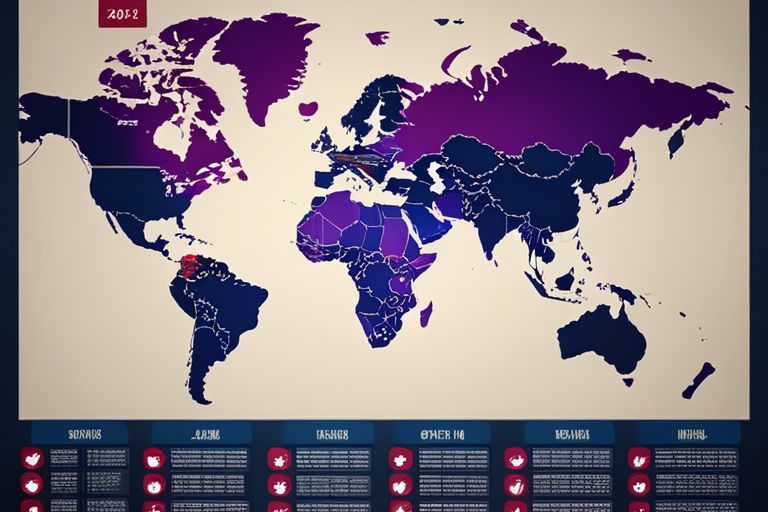Evolution of Online Gambling Laws in Asia

Most Asian countries have undergone significant changes in their online gambling laws over the years. From strict regulations to more relaxed policies, the landscape of online gambling in Asia has evolved rapidly. Understanding the historical context and current regulations can provide valuable insights into the complexities of online gambling legality in this region.
Historical Context of Gambling Laws in Asia
Ancient and Cultural Perspectives on Gambling
Before the establishment of formal laws, gambling has deep roots in Asian cultures. From ancient Chinese dice games to Japanese hanafuda cards, gambling has been ingrained in various traditions for centuries. While these activities were not heavily regulated, they played a significant role in social customs and entertainment.
Development of Formal Gambling Regulations
Laws in Asian countries started addressing gambling as it became more widespread. The formalization of regulations aimed to control the negative aspects associated with gambling, such as addiction and illegal activities. Governments began introducing specific laws and restrictions to manage the industry and protect citizens from potential harm.
It is important to recognize that the historical context of gambling laws in Asia reflects a gradual shift from cultural acceptance to legal regulation. As societies evolved, so did the approach towards gambling, leading to the development of more structured and comprehensive regulatory frameworks.
Key Legislative Changes in the 21st Century
Internet's Impact on Gambling Laws
Laws surrounding online gambling in Asia have evolved rapidly in the 21st century. The rise of the internet challenged traditional regulatory frameworks, leading to the need for new laws to address the digital landscape.
Notable Changes in Major Asian Countries
For several major Asian countries, such as Japan, Singapore, and the Philippines, significant changes in gambling laws have been implemented to adapt to the growing online gambling industry. These countries have introduced new regulations to address issues such as licensing, taxation, and player protection.
A prime example is Japan, which legalized casino gambling in 2018, opening the door to integrated resorts and establishing a regulatory authority to oversee the industry. Singapore has also updated its laws to regulate online gambling activities more effectively, ensuring compliance and tackling illegal operators.
Current Legal Landscapes in Various Asian Countries
China and Hong Kong
One of the strictest countries when it comes to online gambling is China, where it is largely prohibited. Hong Kong, a special administrative region of China, also has strict laws against online gambling. The government actively blocks access to online gambling websites and punishes those who participate in such activities.
India
To understand the legal landscape of online gambling in India, one must navigate through a complex mix of federal and state laws. While some states have legalized certain forms of gambling, others have stricter regulations. Online gambling falls into a legal grey area, with no clear laws explicitly addressing it on a national level.
Japan
To date, Japan has stringent laws regulating gambling activities. While land-based casinos have been legalized, online gambling remains largely prohibited. The government has taken steps to prevent its citizens from accessing foreign gambling websites and has strict penalties for those caught participating in online gambling.
Southeast Asia: A Focus on Thailand and Singapore
To understand the online gambling landscape in Southeast Asia, a closer look at countries like Thailand and Singapore is vital. While Thailand has strict anti-gambling laws that prohibit most forms of gambling, including online, Singapore has a more regulated approach. Singapore permits certain forms of online gambling through licensed operators, while actively blocking access to unauthorized websites.
Challenges and Future Directions
Enforcement Issues and Technological Advancements
Advancements in technology have presented challenges in enforcing online gambling laws in Asia. As the industry evolves, online gambling platforms are constantly adapting to avoid detection by authorities, making enforcement a complex and ongoing task.
Harmonization Efforts and International Cooperation
Harmonization efforts and international cooperation are crucial in addressing the cross-border nature of online gambling in Asia. By establishing common standards and sharing information, countries can better regulate the industry and combat issues such as money laundering and fraud.
Efforts such as the Association of Southeast Asian Nations (ASEAN) Gaming Forum aim to facilitate dialogue and collaboration among member states to create a more unified approach towards regulating online gambling.
Technological advancements and collaboration among Asian countries are crucial in shaping the future of online gambling laws in the region. By staying ahead of evolving trends and working together, jurisdictions can effectively manage the challenges posed by the digital gambling landscape.
Conclusion
As a reminder, the evolution of online gambling laws in Asia is a complex and constantly changing landscape. From strict bans to regulated markets, each country in Asia has its own approach to online gambling. It is imperative for players and operators to stay informed about the latest regulations and ensure compliance with local laws to avoid legal repercussions. As the industry continues to grow and adapt, understanding these laws is crucial for a successful and sustainable online gambling experience in Asia.
FAQs:
What is the historical context of gambling laws in Asia?
Gambling in Asia has deep cultural roots, evolving from ancient traditions to formal regulations aimed at managing its societal impact.
How have gambling laws in major Asian countries changed in the 21st century?
Countries like Japan and Singapore have adapted their laws to regulate online gambling, addressing issues such as licensing and player protection.
What is the current legal status of online gambling in China and Hong Kong?
Both China and Hong Kong maintain strict prohibitions on online gambling, with stringent penalties for those involved in unauthorized activities.
What are the challenges facing the enforcement of online gambling laws in Asia?
Technological advancements complicate enforcement efforts, as platforms evolve to evade detection by regulatory authorities.
How are Southeast Asian countries like Thailand and Singapore approaching online gambling regulations?
While Thailand prohibits most forms of gambling, Singapore permits regulated online gambling through licensed operators, with measures to block unauthorized sites.
Recommended Posts

SEO Strategies for iGaming Success
July 1, 2024

Hub88 & Popiplay Enhance iGaming Content
July 1, 2024

Werner Becher Appointed CEO of Kambi Group
July 1, 2024



